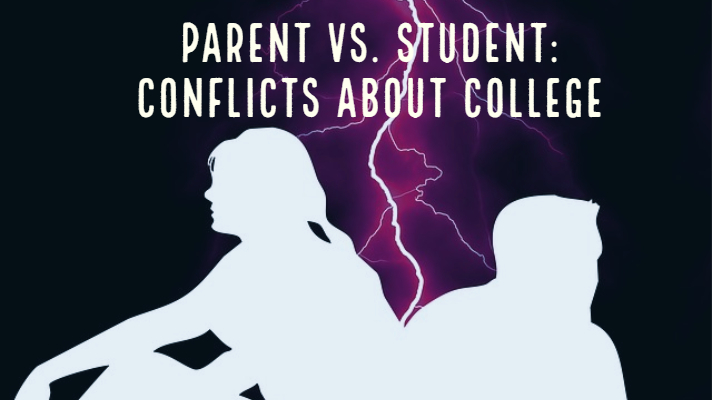Every year students struggle with the transition from home life to college life and some of them find it so hard they do not make it through their freshman year. Sometimes they find the academic challenge too much, but for many of those who quit it is more the fact of being away from home and having to run their own life that they cannot cope with.
Teach Them To Accept They Will Not Always Excel
In high school, your child could have been an A student who always came top of their class. Now they are a different environment with other students who did well at school. The work is much harder and their grades may drop to B’s or C’s. They might no longer be the top of the class. They need to know how to cope with this, and to know that they will not always excel at everything they do. The important thing is that they try their best, and as long as they have done that, they should accept whatever position they are in the class.
Having other people around that are more capable than us is part of life and a lesson they need to learn.
Help With Their Coping Mechanisms
The first few months at college can be very stressful. For many of the students, they have left home for the first time and find themselves in a strange environment. Some just give up and go back home, some seek teen anxiety treatment as they want to see it through, and others establish coping mechanisms of their own. Your children are likely to be in the former camp, or not struggle at all if you give them the right tools now.
Chat to them about how they are coping and see if there are any tips you can give them to make it a little easier. They are going to have to cope with challenges all through their life and establishing ways of coping with them now, whether that is from you or the professionals that have helped them, will stand them in good stead for the future.
Give Them Freedom
It is very tempting to keep tabs on your children so that you always know where they are and what they are doing. This is a natural reaction for parents who want to prevent their children from making mistakes.
However, if they never make a mistake they will not know how to deal with it, or how to get on with life afterward when they’re out on their own at college. You should expect them to test the boundaries and sometimes to make a wrong decision. Be there if they want your help, but generally teach them they have to accept responsibility for what they got wrong and deal with the consequences.
Let them know you are pleased when they have made the right choice over something, as this will foster a feeling of confidence in them.
Teach Them That The Small Stuff Does Not Matter
There are so many small things that teenagers will stress over that really do not matter. You should teach them the important things in life, and that they are just causing themselves unnecessary stress if they worry about small things such as what color socks they are wearing or if they have to go out in the evening when they do not want to.
Teach them to be resilient to the knocks life is bound to throw at them and they will grow into a much more capable and confident adult.



 It’s fall for high school juniors and that means it’s time to jump right in and start those college visits. (Sophomores should start making these as well–there is much to be gained from
It’s fall for high school juniors and that means it’s time to jump right in and start those college visits. (Sophomores should start making these as well–there is much to be gained from  As a parent, many things will cause you worry and sleepless nights. When our kids are tiny, we worry about whether they are safe in their crib, whether they are getting enough milk and if they are warm enough. As they get older though, the things that you worry about change. You send them off to school in a jumper and assume that they’ll be able to keep themselves warm and fed. But, there are new things to worry about. You’ll spend time wondering how they are settling in, if they’ve got friends, how they are coping with their workload and if they are trying their best.
As a parent, many things will cause you worry and sleepless nights. When our kids are tiny, we worry about whether they are safe in their crib, whether they are getting enough milk and if they are warm enough. As they get older though, the things that you worry about change. You send them off to school in a jumper and assume that they’ll be able to keep themselves warm and fed. But, there are new things to worry about. You’ll spend time wondering how they are settling in, if they’ve got friends, how they are coping with their workload and if they are trying their best. College is a very important decision. It could affect your child for the rest of their lives and it could even mean the difference between them getting the job of their dreams and not. Of course, as a parent you may feel pressure here as well because you only want the best for your child and you also want them to do well. The last thing that you want however is to put additional pressure on them because if you do then you may end up doing more harm than good and this is something that you will want to avoid.
College is a very important decision. It could affect your child for the rest of their lives and it could even mean the difference between them getting the job of their dreams and not. Of course, as a parent you may feel pressure here as well because you only want the best for your child and you also want them to do well. The last thing that you want however is to put additional pressure on them because if you do then you may end up doing more harm than good and this is something that you will want to avoid. Now that your student is all grown up and off to college, it’s perhaps time to have that chat about buying a car. Undoubtedly, it’s going to make his or her life way easier when they have to be on time for classes – and it also gives them that sense of extra responsibility that we often need in order to actually grow up.
Now that your student is all grown up and off to college, it’s perhaps time to have that chat about buying a car. Undoubtedly, it’s going to make his or her life way easier when they have to be on time for classes – and it also gives them that sense of extra responsibility that we often need in order to actually grow up. It’s that time of year again. Parents are moving their brand-new college students into college dorms. Tears are flowing. Anxiety abounds. Parents have dreaded move-in day for months and sadness permeates just about every single post on social media.
It’s that time of year again. Parents are moving their brand-new college students into college dorms. Tears are flowing. Anxiety abounds. Parents have dreaded move-in day for months and sadness permeates just about every single post on social media. Your child is finally leaving for college. It may seem just like the other day that you were seeing them off to their first day at school. Now, you are helping them pack away their things, so they can further their education and help change the world. This can be an emotional experience for both parent and child alike–even if the child won’t admit to it. To make sure that both parent and child make the most of their last few months living together, here are a few experiences that you can share before college.
Your child is finally leaving for college. It may seem just like the other day that you were seeing them off to their first day at school. Now, you are helping them pack away their things, so they can further their education and help change the world. This can be an emotional experience for both parent and child alike–even if the child won’t admit to it. To make sure that both parent and child make the most of their last few months living together, here are a few experiences that you can share before college. Ask a high school student (without a parent present) and most would tell you that they want to go to college for a) the social scene (aka partying), b) to get away from home and their parents, and c) to get a degree so they can get a high paying job after graduation. Ask a parent about the reasons they want their kids to go to college and they will tell you unequivocally that it’s for an education which will lead to a good job after graduation.
Ask a high school student (without a parent present) and most would tell you that they want to go to college for a) the social scene (aka partying), b) to get away from home and their parents, and c) to get a degree so they can get a high paying job after graduation. Ask a parent about the reasons they want their kids to go to college and they will tell you unequivocally that it’s for an education which will lead to a good job after graduation.